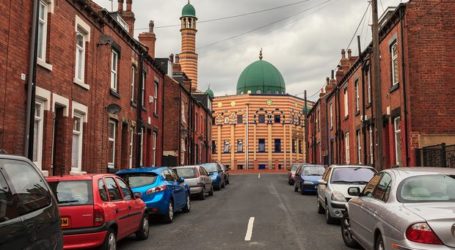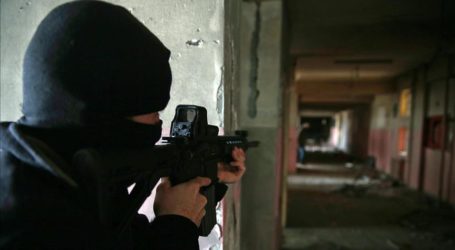UK MUSLIMS ISSUE MADRASSAS SAFETY GUIDES

London, 23 Jumadil Awal 1434/3 April 2013 (MINA) – Creating a better learning environment, a leading Bradford Islamic organization has introduced a new guideline for Islamic religious schools, encouraging a safe environment that led to an increase in the number of children coming to learn.
“It’s very important to have these safeguarding policies because you know your children are safe,” Azhar Farooq, a Bradford Muslim father who sends his child to the classes at the Jami’at Tabligh-ul-Islam Mosque, told The BBC on Tuesday, (2/4) according to OnIslam.net reports monitored by Mi’raj News Agency (MINA)
“The teacher gives a monthly report on my son’s progress and it’s a similar environment to mainstream school.” The new guidelines were first introduced in Bradford, which hosts some 100 madrassas, where British Muslim children spend about 10 hours each week to learn reciting the Noble Qur’an in Arabic.
These guidelines were suggested after a Radio 4 investigation uncovered more than 400 allegations of abuse relating to Britain’s madrassas in incidents spanning three years.
The revelation prompted calls for formal regulation of the religious schools; attended by more than 250,000 British Muslim children, by the Mosques and Imams National Advisory Board, a body set up to improve standards in mosques.
After months of extensive work, the Council for Mosques in Bradford, West Yorkshire, issued a document entitled Children Do Matter which offers a guideline for the city’s madrassas.
The document was the first fruit of cooperation between the National Society for the Prevention of Cruelty to Children, the police and the local council.
Leading the way, the Jami’at Tabligh-ul-Islam Mosque, which provides lessons for children aged seven to 18, has been one of the first institutions to take up the guidelines.
“We’re talking about almost 10,000 children in the district who need looking after,” says Mohammed Rafiq Sehgal, the senior vice-president for the Bradford Council for Mosques and chairman of its safeguarding working group.
“Although the majority of religious establishments have an excellent track record of care, we feel that some need more support.”
The document’s key recommendations include criminal record checks for staff, more parental involvement, a structured learning system and a call for women to be more involved with the schools.
“These guidelines will ensure the safety of children, as well as helping staff to deal with any problems that may arise,” Sehgal said. “It will certainly enhance public confidence in our institutions.”
The new guidelines were widely welcomed by children and teaching staff as well.
Eleven-year-old pupil Mohammed Waleed says he enjoys coming to the mosque, describing his time there as “more of an after-school club” than anything else. He also says he feels safe because “there are security cameras in place”. Similarly, student Tanzeela Kosser said “children are happy here because there’s no bullying”.
Applying the guidelines in Bradford’s Jami’at Tabligh-ul-Islam Mosque several months ago, the staff praised the results of the new experience.
“We’ve done training in safeguarding and child protection and I’ve benefited from it quite a lot.” Naheed Kosser, the mosque’s only female teacher, told BBC.
“It actually shows you how to look after kids and it’s created a great place to learn about Islam.” Staff members added that encouraging a safe environment has led to an increase in the number of children coming to learn.
“The attendance has definitely increased by about 30%,” Adnan Ahmed, who teaches a class of young boys, said. “We’ve got to the point where we can’t enrol any more students.”
Ahmed added that changes have also improved morale among pupils, creating a better learning environment. “It’s because of the communication and understanding we’ve got with the children,” he explains.
“Now when we give them homework they do it – whereas before they never had any interest.’”Britain is home to a sizable Muslim minority of nearly 2.7 million. The majority of the multi-ethnic minority has Indian, Bengali and Pakistani backgrounds.
The 2011 census showed that the proportion of Muslims rose from 3.0 percent to 4.8 percent, becoming the fastest growing faith in Britain.(T/P012/P03)
MIRAJ NEWS AGENCY (MINA)






